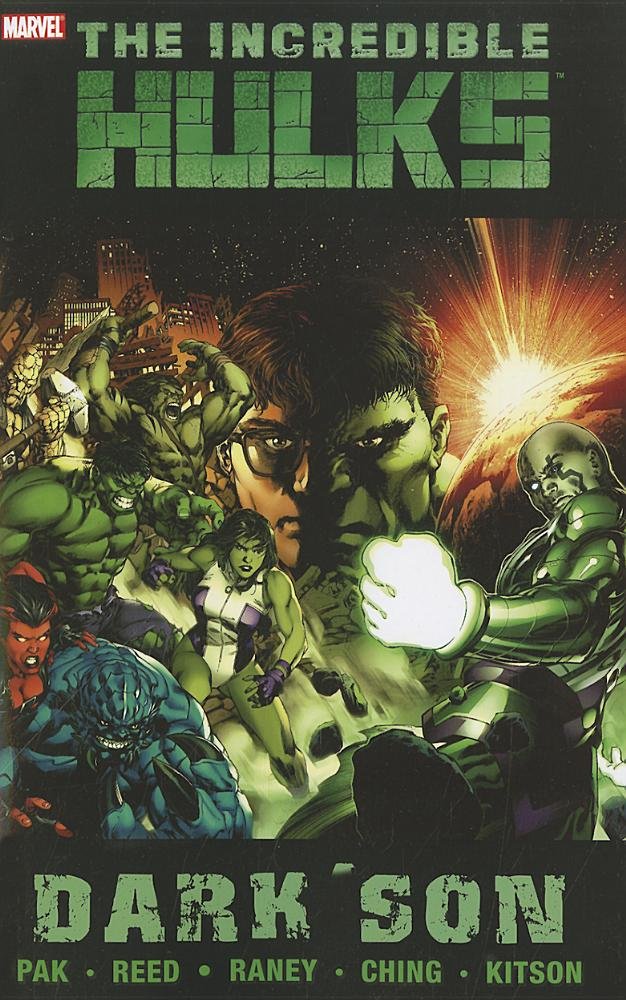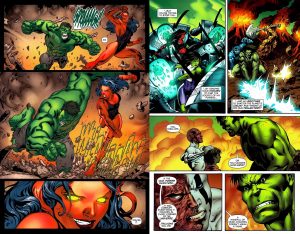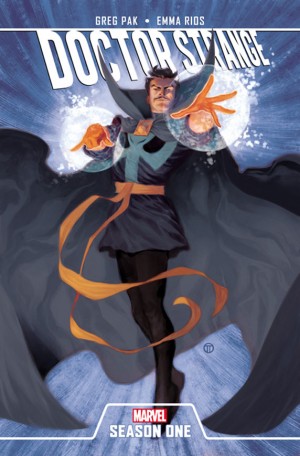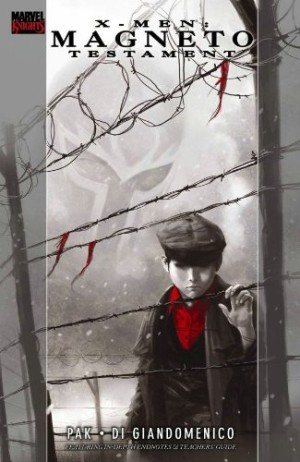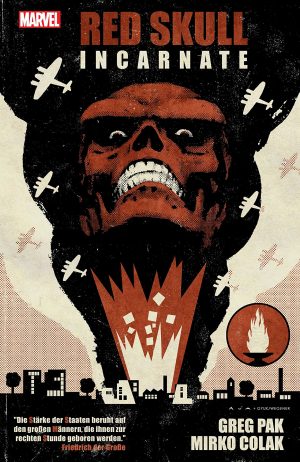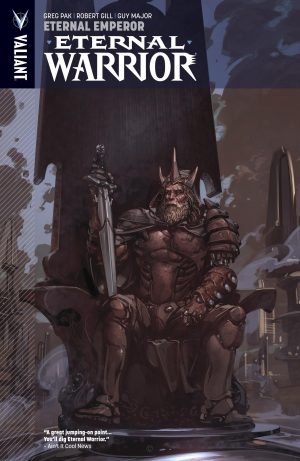Review by Karl Verhoven
At this stage the Hulk is Bruce Banner, he’s still smart, and he’s hanging out on Earth with assorted allies, most of whom can also transform into some form of Hulk, united during World War Hulks. The red She-Hulk has recently been revealed as Betty Banner, previously thought dead, and there’s a whole lot of processing going on about that, leading to the inevitable confrontation of alter-egos as seen in Tom Raney’s sample art.
Greg Pak’s plot has merit, but it’s squandered by some awkward sequencing and a fair amount of padding. The main menace is the Hulk’s previously unknown son Hiro-Kala, twin of Skaar and motivated by so much hate for his father that he’s dragged a planet out of orbit and set it on a collision course to destroy Earth. He was first seen in back-ups during World War Hulks, and in order to accommodate the considerable back story needed to explain what Hiro-Kala’s up to, he stars in alternate chapters. It means those featuring the Hulk and allies are padded until the threads can be united, and there’s little of the first half that isn’t just Hulk punching someone. After the Red She-Hulk, he faces off against a whole squadron of superheroes led by Captain America, and while that results in some nice pin-ups from Barry Kitson, in terms of the greater plot that’s all it does. Once we’ve learned enough about Hiro-Kala, Pak writing this ponderously with Scott Reed, the Hulk and his allies head off into space to confront Hiro-Kala. “By all means talk to him”, Captain America advises, “but don’t forget how to smash”. “Fine”, replies the Hulk, smashing the communication device beyond repair. It sums up much of Dark Son in a nutshell. It supplies a dynamic moment for Kitson to illustrate, but if given any consideration at all, it fails the logic test.
In other circumstances the idea of the villain being the Hulk’s son might have some emotional pull, but we’ve never seen Hiro-Kala before World War Hulks, so he’s just another monster with a monstrous plan, and at the time the Hulk’s other son Skaar was a relatively recent revelation. It’s not even a case where more sympathetic art would make a difference, as Pak and Reed write Hiro-Kala as a one-note tyrant, so main artist Kitson does everything that’s needed to make the action spectacular. What’s intended as a big emotional finish is also unconvincing. Pak’s responsible for some very good Hulk stories, but not here. The Incredible Hulks continue with Chaos War.
